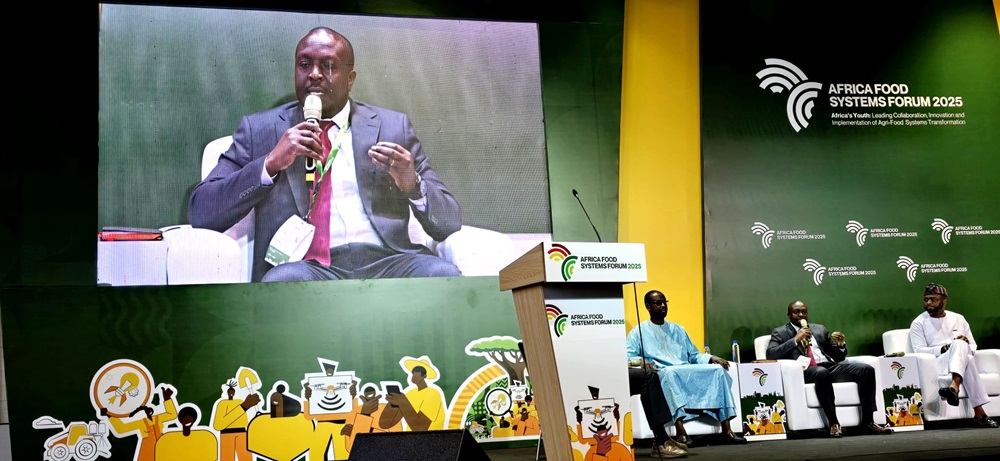
CABI has highlighted its expertise in digital development by taking part in the Africa Food Systems Forum (AFSF) in Senegal where it outlined how sharing data through regional platforms can help different agricultural services work better together.
The AFSF is the world’s premier forum for African agriculture and food systems and brought together stakeholders to take practical action and share lessons that will move African food systems forward.
Henry Mibei, CABI’s Manager, Digital Development for Africa, took part in a panel discussion as part of a thematic session on agri-tech and digitization organized by FAO, IFAD, AGRA, BMGF and YARA.
Digital agriculture services have struggled to gain widespread adoption
The thematic session outlined how digital agriculture services have struggled to gain widespread adoption and maintain economic sustainability in many African countries. Few farmers perceive sufficient value in these services and often lack the financial and technical means to benefit from them.
To address these challenges, public and private stakeholders must collaborate to develop innovative and inclusive business models, using a multistakeholder approach that ensures technical relevance, accessibility, and long-term viability.
As part of the panel discussion, Mr Mibei said achieving sustainable food systems in Africa can only be accomplished by harnessing the power of data and the current advancements digital technology.
CABI collects and disseminates scientific information
He outlined how CABI collects and disseminates scientific information through databases, platforms, compendia, and publications to benefit smallholder farmers and researchers worldwide – helping them to increase their yields, livelihoods and food security by sustainably managing crop pests and diseases.
Mr Mibei said CABI advocates to make data FAIR – that is data should be Findable, Accessible, Interoperable, and Reusable.
“We must store data in open repositories, regional platforms, use rich and structured metadata, and provide a clear reuse license so that these data can be findable and accessible by other users. CABI is keen to ensure data access across multiple geographies leveraging the FAIR data principles,” he said.
An asset in establishing Multistakeholder Digital Agriculture Service Platforms
Mr Mibei said data is an asset in establishing Multistakeholder Digital Agriculture Service Platforms and that we need collaborative platforms that support data interoperability to integrate a variety of digital service providers.
He added, “Digital transformation in agriculture will not succeed if it does not translate into real value and lasting benefits for farmers.
“Let’s build the future of agriculture by investing in digital solutions that work for farmers today. Let’s collaborate and stand beside the youths to support and scale their innovations.”
He said almost 80% of the data we use in modelling are existing data and asked the audience to imagine how much more we can do by harnessing the power of existing data.
Build capacity in improving data quality, data management and data sharing
Mr Mibei said, “When we share data across platforms it prevents redundant data collection, allowing digital agricultural services to reuse validated datasets. This automatically reduce operational costs and accelerates deployment of new tools, especially in resource constrained contexts.
“Sharing data through regional platforms encourages collaboration and innovation which is key to building sustainable digital agricultural systems.
“We must invest and build capacity in improving data quality, data management and data sharing.”
Additional information
Main image: Henry Mibei, CABI’s Manager, Digital Development for Africa, speaking at the Africa Food Systems Forum in Senegal.
Relevant stories
‘How can we make smallholder farming more sustainable, safer and secure to feed a growing world?’
Related News & Blogs
How can we make smallholder farming more sustainable, safer and secure to feed a growing world?
This year’s Africa Food Systems Summit 2025, in Dakar, Senegal, focuses on Africa’s youth and how they can lead collaboration, innovation, and the implementation of agri-food systems transformation for a stronger and more resilient food value chain. It…
3 September 2025





